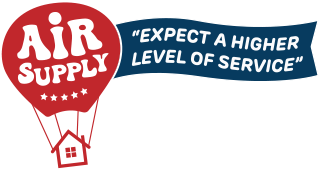A home energy audit, also known as a home energy assessment, is the first step to assess how much energy your home consumes and to evaluate what measures you can take to make your home more energy efficient. This assessment will show you the problems that may, when corrected, save you significant amounts of money over time.
Checklist & Steps for How to Conduct Your Own Home Energy Audit
When it comes to home energy audits, most homeowners have two choices. They can try and do it themselves, or hire a professional. Hiring a professional provides the best results and achieves a thorough audit. If you have decided to conduct your own energy audit, these are five steps you can take to get the most out of it.
1. Locate air leaks. According to the U.S. Department of Energy, the potential energy savings from reducing drafts in a home can range from 5% to 30% per year. This also makes the home more comfortable afterwards. Check each room for obvious air leaks or drafts. Some common areas where air leaks can occur are baseboard gaps, wall/ceiling junctures and door frames. After you have made a list of the indoor leaks, you can investigate outside the home. The next step is to seal all these leaks with a plug or caulk. Obviously a professional HVAC company is going to be much better at locating leaks than the typical well-meaning homeowner. You may think you are saving a few bucks by doing it yourself but imagine the energy savings you are missing out on by overlooking just one leak!
2. Check insulation. If insulation levels are less than the recommended minimum, heat loss through the ceiling and walls could be very large. When your house was built, the builder used the recommended insulation for that time, but given today’s insulation requirements as well as energy prices, the level of insulation may be inadequate.
3. Inspect heating and cooling systems. This should be done annually. If you have a forced-air furnace, check the filters and replace them as needed. You should change these monthly, especially during high use periods. Have your HVAC serviced once a year by a professional. Units that are over 15 years old should be replaced with a newer, more energy efficient model. Check the ductwork for streaks around the seams as these can indicate air leaks. Make sure ducts or seals are insulated if they travel through unheated spaces. Again, a professional HVAC company can do a much more thorough HVAC inspection than the average homeowner. We know what to look for as well as the signs that your equipment is not working optimally; or about to get worse!
4. Lighting. The energy for lighting accounts for about 10% of your electric bill. Check all the light bulbs in your house and consider replacing inefficient bulbs with more efficient bulbs. When you shop for bulbs, consider the brightness of the bulbs you want. Your electric company may offer rebates for using energy-efficient lamps. Other ways to control lighting use can be done with sensors, dimmers and timers.
5. Appliances and electronics. The appliances and electronics you choose, and how you use them will affect your energy use and costs. Check out your appliances and estimate their use of energy. Come up with strategies to reduce the energy use. You can unplug them when you’re not using them to avoid phantom loads, change the settings, use them less often or purchase newer, more efficient models.
Home & Commercial Property Energy Audits in the Las Vegas Valley, Summerlin, North LV & Henderson Nevada
After you have completed your do-it-yourself audit, consider calling the professionals at Air Supply Heating & Air Conditioning to do a more thorough assessment. Your DIY audit will help the auditor better analyze your home and find potential areas for saving.

